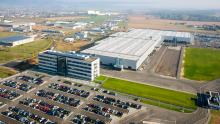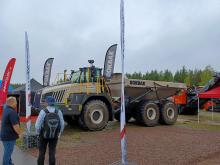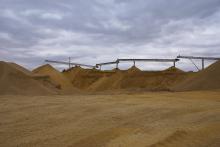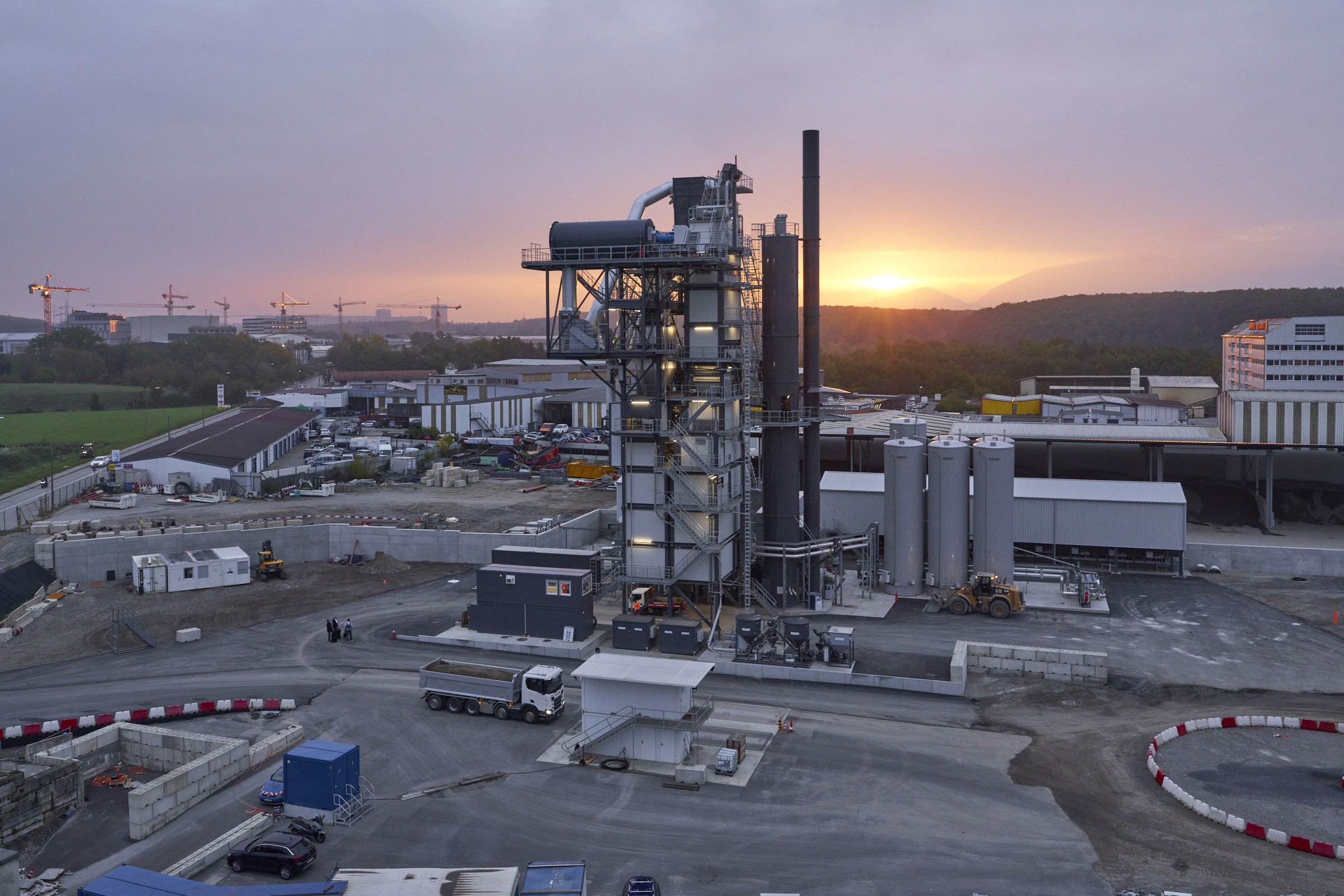
How do you get the biggest sustainability 'bang for your buck' in today's US$4bn-a-year global asphalt-plant market? It's a question dominating plant operators' minds worldwide and one to which major premium asphalt-plant and linked-solutions manufacturer Benninghoven offers a cogent response. Guy Woodford reports
Whether you want to lower your carbon emissions via warm-mix (low-temperature asphalt) rather than hot-mix asphalt production, make greater use of RAP (reclaimed asphalt pavement] in your asphalt mixes, switch to powering your asphalt production with low- or zero-carbon alternative fuels, to retrofit your asphalt plant to improve its eco-minded efficiency or incorporate all those worthy aims in your future business delivery, Wittlich, southwest Germany-based Benninghoven's continuing large investment in research and development (R&D) and its comprehensive modern product range leaves it well placed to meet customers' greater sustainability expectations.
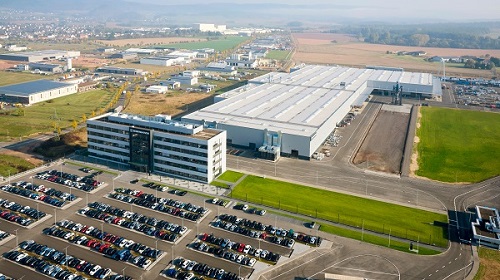
Aggregates Business recently spoke to Benninghoven general manager Heinrich Steins and the company's head of R&D, Steven Mac Nelly, to get the latest on the Wirtgen Group brand's approach to sustainability, other key market trends and where Benninghoven sees its biggest growth opportunities during the next few years.
At the large cutting-edge production facility within the company's €130 million state-of-the-art HQ, Benninghoven produces mobile and stationary 100-400tonnes/hour asphalt-mixing plants, capable of handling up to 100% reclaimed asphalt pavement (RAP). Benninghoven is gaining wider market recognition for its innovative modular system and intelligent connection technology, making assembly easier. Steins stresses that the company also produces high-quality, maintenance-friendly components for all its plants.
"Out of the modules, we can build different plants. From a manufacturing perspective, we brought a new approach to the old industry. We manufacture modules and test their functionality within our factory so that we know the senior components are functional and can bring the modules together on a customer site; we know that the quality is there and the plant will function," says Steins.
Benninghoven's asphalt plant types – ECO, TBA, and RPP – feature the company's BLS 4 control systems. The firm also produces its own asphalt-plant combustion (burner) technology, with burners available in five sizes, and carries out full asphalt-plant retrofits.
Steins continues: "Sustainability is a subject growing at different rates of speed in different markets. However, many solutions require new investments. The way to finance this is by increasing your use of RAP, which will lower your production cost and increase your margin as an asphalt producer or road construction company. In some regions of the world, RAP costs nothing. With those achieved savings, you can afford to invest in future technologies and drive sustainability forward."

Steins says customers also increasingly want to consider alternative fuel options, including green hydrogen, to power their asphalt plant's material-drying. This and other sustainability-minded production shifts are, notes Steins, due to tougher EU and other big regional and national government environmental legislation and new green-minded works-contract stipulations. To keep global warming to no more than 1.5°C – as called for in the Paris Agreement – carbon emissions must be reduced by 45% by 2030 and reach net zero by 2050.
"All this is driving huge change in the entire industry," says Steins. "In several Scandinavian countries, if you are part of a tender for a road construction project, you get preferred treatment if you can prove that you can reduce your carbon footrprint during the works and your competitors can't. Some countries have carbon-tax legislation coming in, and the US has gone for a huge Green Deal. In South America, Brazil is considering increasing the recycled material used in roadbuilding by classifying it as raw material. It's also coming at different levels in Asia."
From a Benninghoven perspective, Steins re-emphasises that the company meets the growing customer need for more sustainable asphalt-plant technologies. "CO₂-avoidance technology is big in Europe, North and South America, and an important part of those regions' futures."
Focusing on the market shift to warm- and cold-mix asphalt production, Mac Nelly says: "It differs between regions what they mean by warm and cold mix. In the Netherlands, they mean 110˚C; in Germany, they could mean 150˚C [compared to 170˚C-175˚C for hot mix]. That's a big difference. The technology for this is not new. We have offered foam bitumen systems for over 13 years to customers in various countries, such as the Netherlands, Norway, and Sweden. What needs to be extended is the long-term quality check. How is the marketplace quality of the warm-mix asphalt produced with a foam bitumen system and some additives supplied ten years ago?
"Some studies already show that the long-term quality of LTA [low-temperature asphalt] is comparable to that of conventional asphalt. However, the effects of additives on the next life cycle (re-recycling) in terms of quality and emissions during production and processing need to be examined more closely.
"I would add that even with warm- rather than hot-mix material, you can use a higher percentage of RAP," says Steins. "In the last couple of years, the Wirtgen Group has been starting to think about different production systems for roadbuilding. We call warm recycling one of them, which involves the end-to-end process. We look as a Group at the milling process via the Wirtgen cold milling machines; then we have Kleemann for crushing and screening; then we look to create the right asphalt-mix recipe with our Benninghoven asphalt plants that give the maximum economic and sustainable output for our customer, then bring it back to the road [for Vögele paving and Hamm compaction]."
Mac Nelly adds: "Some plant owners have tended to produce asphalt at the hottest temperature possible as they think it gives them the highest quality product. They want to see the steam over the asphalt. Around 95% of asphalt-plant operations in Germany have traditionally used lignite coal dust as a fuel, and energy has been really cheap. Plant owners have started rethinking and saying, 'Okay, fuel now costs a lot of money, and maybe 150˚C will be enough temperature as the final product quality is much better as the [asphalt's] physical properties don't like high temperatures'."
"We have recycled asphalt material that can be processed at 160˚C, yet we still see some virgin material being overheated because it is sometimes not believed that temperatures around 160˚C can achieve a high-quality product," says Steins. "We have enough examples we can show. You don't have to change your asphalt plant's fuel if you manage the heating of your virgin and recycled material more efficiently. This will give you significant energy cost savings and reduce your CO₂ emissions."
Steins says modern technology will likely quicken the switch to lower-temperature virgin and recycled material asphalt production. "In the past, some very experienced technicians would turn every knob on the asphalt plant and knew what to do. Where asphalt plants are going is having a control system that will achieve consistent product output and lower energy use. It is a required shift as getting people with decades of experience to run asphalt plants is hard."
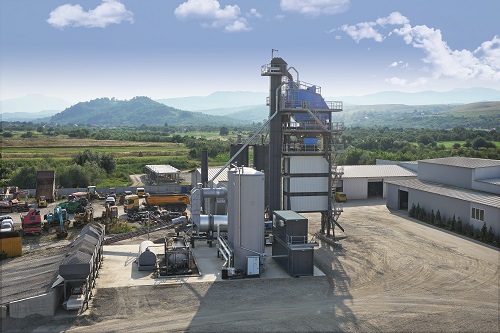
He continues: "Our plant-servicing business is just properly starting. What moved it on was the covid pandemic, as we couldn't send people to customer sites, so we made failure identifications through remote function. We also did some remote commissioning of plants. Developing our plant control system, including a new control setup for our burners, has made much remote servicing possible. We can do some remote burner maintenance. Customers have seen the positive results they are getting, which gives them the confidence to invest further in plant servicing."
Steins believes preventative maintenance solutions are perfect for the needs of Benninghoven's 24/7 modern customers. "We used to have customers doing roadbuilding, say, March until October, then have a long winter break, during which they do their plant maintenance. With changing weather patterns, there are no longer two-thirds of the year business and one-third of the year maintenance businesses. There are more and more all-year-round businesses in more need of preventative maintenance."
Steins says the fact that customers in many countries are finding it increasingly difficult to get a permit to operate a new asphalt-plant site is also playing a big part in a market shift to more sustainable and more efficient asphalt-plant production, often through the retrofitting of new technologies on existing plant models. "It is much easier to get a permit for an asphalt-plant retrofit where a major part of the plant, like the burner or complete drying system, is exchanged for our latest modular solutions. A customer's capital expenditure is also less. We have the corresponding retrofitting solutions, and we are seeing a lot of interesting projects."
Returning to the makeup of today's global asphalt-plant market, Steins notes that it is extremely difficult to calculate exactly how many plants are operated worldwide. "There are a lot of very small plants using very simple technology. In the more traditional markets, there is a lot of larger plant consolidation, with those plants involved in more complex applications."
Asked which Benninghoven asphalt plants are the most popular with customers, Steins responds: "We have seen great interest in the ECO series in markets like the Middle East and Eastern Europe. It is not needed to do much warm-mix asphalt production. It is a standard plant with high economic efficiency; a reliable investment. The RPP (Recycling Priority Plant) series is popular in Europe for asphalt-recycling applications regarding maximum recycling rates in asphalt production with minimum emissions. The leading recycling technology allows plant owners to produce asphaltic mixtures from 100 % reclaimed asphalt. Thus, the RPPs also stand for a reduction of the CO₂ footprint."
During our three-way Microsoft Teams call, Mac Nelly displays a series of diagrams and charts. One diagram shows the amount of carbon dioxide emissions in a kilometre of highway production chain; another highlights the impact of RAP content levels on a plant's carbon emissions.
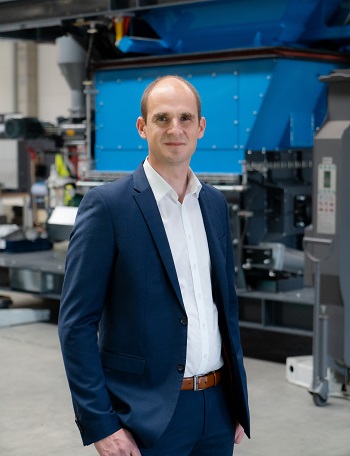
"Carbon emissions occur during the extraction, crushing and screening of the virgin materials; then you have to transport it to the asphalt-mixing plant, with the creation and transporting of the bitumen used in asphalt production generating further huge carbon emissions. Then a hot- rather than warm-mix production leads to high consumption of fuels to dry the minerals, generating greater carbon emissions. Finally, you must transport the finished material to the highway to be paved and compacted, generating further carbon emissions.
"If you substitute virgin materials for 60% of RAP materials in your asphalt-production mix, with RAP already containing bitumen, you reduce 17% of your highway kilometre's total carbon emissions. This is possible when using Benninghoven's Recycling Priority Plant (RPP). It is a state-of-the-art plant using hot-gas generator technology that allows customers to use up to 100% of RAP material while complying with VOC [volatile organic compound] emissions values."
Mac Nelly says that for customers that don't want to spend top dollar on the RPP plant due to their lower annual production requirement, Benninghoven offers a REVOC retrofit solution, a patented innovation first presented at the bauma Munich exhibition (24-30 October 2022). Benninghoven REVOC supplements existing asphalt-mixing plants with one or more recycling systems, significantly reducing total carbon concentrations (VOC) in the exhaust gas and adding up to 60% recycled material. Specified limits are not exceeded. In Germany, for example, the levels remain below the limit the TA-Luft regulation requires.
Steins says Benninghoven's discussions with existing and potentially new asphalt-plant customers have increasingly focused on where the company is going on powering its plants with CO₂-neutral alternative fuels. "Roadbuilding companies with integrated asphalt-plant production see asphalt plants as offering a big bang for their buck around carbon-emission reductions alongside switching their vehicle fleets to electric and, in the longer term, hydrogen internal combustion engine or fuel cell power."
Mac Nelly says: "Customers use oil and lignite dust to power asphalt plants, especially in Germany, but its availability will decrease due to the emphasis on greener production. Natural gas and LPG [Liquefied Petroleum Gas] and LNG [Liquefied Natural Gas] could be fuels for the near future as a bridge technology. We can halve carbon emissions with natural gas, but it's still present."
Mac Nelly explains that while some biofuels, like BtL [Biomass to Liquid] and HVO [Hydrotreated Vegetable Oil], are classified as CO₂-free in current legislation, making them a potentially attractive future asphalt-production fuel, others are not. "If you produce asphalt with oil and lignite dust, you generate around 28kg of carbon dioxide per tonne of asphalt. With [a biofuel like] wood dust, you generate 27kg of carbon dioxide per tonne of asphalt – nearly the same. With natural gas, you generate 15kg of carbon dioxide per tonne.
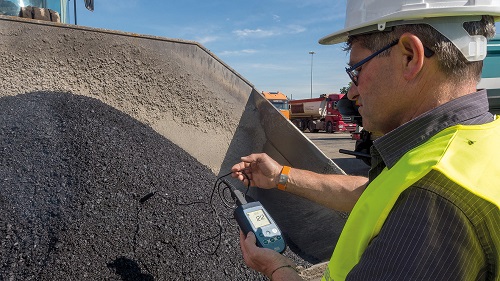
"Possibly in the near future, green hydrogen will be one of the future fuels. Will it be the only one? No, I don't think so. But it will play a very important part. This is why we are doing a lot of research and development work around green power for asphalt-mixing plants. In addition to the fuels of the future, the focus will be on direct energy savings – all the way to locally emission-free."
Steins adds: "We need to give our customers a [asphalt] drying system which can use all future fuels we and, potentially, they can think of. If a customer has an alternative fuel they would like to use, we can test it at our headquarters and let them know if you can burn it with our plants." Steins says Benninghoven is the only asphalt-plant manufacturer offering in-house fuel testing. "We don't have to test different fuels at customer operating sites," he stresses.
Mac Nelly and Steins explain that Benninghoven's solutions development includes customers being 'development partners' using Benninghoven prototypes and existing technologies on their job sites. "We can bring this to developing countries. For example, we have a project with eight or more old asphalt plants generating high energy costs; it's a big issue. By installing our new burner and burner control system on these plants, they can burn up to three different fuels simultaneously, reducing their costs," says Steins.
Commenting on how easy fuel-use change-ups can benefit customers closer to home, Steins continues: "In Germany, an asphalt-plant customer may have a gas contract that limits them to a certain gas usage amount per day, with anything over that permitted usage, triggering an exponential cost increase. Using our system, you can play around, saying, 'Ok, today I will run six hours on natural gas and two hours on oil and lignite dust.' With the rising energy prices, a German customer ran their plant on gas for an extra two hours a day, costing them €80,000."
"In the future, it is conceivable having burner systems that can use 100% green hydrogen, which will also be able to use other fuels via a burner control system," Mac Nelly concludes.

